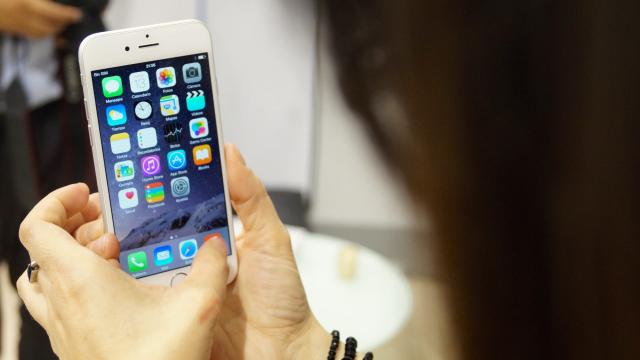You lock yourself in a study room on the second floor of your university’s library, surrounded by dusty tomes and people who just love making out, and proceed to work on your graduate thesis. Unfortunately, you didn’t get rid of the biggest distraction to your studying: Your smartphone. Turning it off might keep you from being distracted, but you’re better off throwing it out the window.
Image credit: Eduardo Woo/Flickr
On second thought, just leave it at home.
That’s what a study from the University of Chicago suggests after discovering having your smartphone in close proximity not only distracts you from the task at hand, but reduces your ability to handle more complex cognitive actions such as remembering and processing data. For those who depend on their smartphone for most things (so, everyone) the effects on their cognitive capacity may be most severe.
[referenced url=”https://www.lifehacker.com.au/2017/06/change-your-screen-to-greyscale-to-combat-phone-addiction/” thumb=”https://i.kinja-img.com/gawker-media/image/upload/t_ku-large/otlj3klxgbw5o1emyge1.jpg” title=”Change Your Screen To Greyscale To Combat Phone Addiction” excerpt=”Former Design Ethicist at Google and founder of the non-profit Time Well Spent, Tristan Harris has been making the rounds lately, talking about how technology is engineered to be addictive and hijack our attention. He’s pretty persuasive, comparing the lure of your phone to the that of a slot machine.”]
Researchers asked participants to keep their silent phones visible on a desk, in a pocket or bag, or in a separate room altogether. They then performed tests on a computer to measure cognitive capacity, one called the Automated Operation Span task measuring working memory capacity, another called the Raven’s Standard Progressive Matrices, measuring fluid intelligence.
The present research identifies a potentially costly side effect of the integration of smartphones into daily life: smartphone-induced “brain drain.” We provide evidence that the mere presence of consumers’ smartphones can adversely affect two measures of cognitive capacity — available working memory capacity and functional fluid intelligence — without interrupting sustained attention or increasing the frequency of phone-related thoughts.
The problem stems from your brain using a bit of your cognitive capacity to stay on track when you know your phone is right next to you, begging to be touched. It gets compounded when something like a notification gets your attention, causing you to think about what that notification (text messages from family, email from a boss) actually means, sending your brain on a tangent that distracts from your primary goal.
The results showed a surprisingly strong case for leaving your phone somewhere else when you want to perform well on a task. The two groups of participants who kept phones nearby either on a desk or in a bag showed lower working memory capacity (the ability to remember information temporarily) and a lower functional fluid intelligence (the ability to solve new problems and see patterns).
Cognitive capacity increased the further removed participants were from their phones.
Participants with phones in another room greatly outperformed those with phones in pockets or on desks in all tasks.
